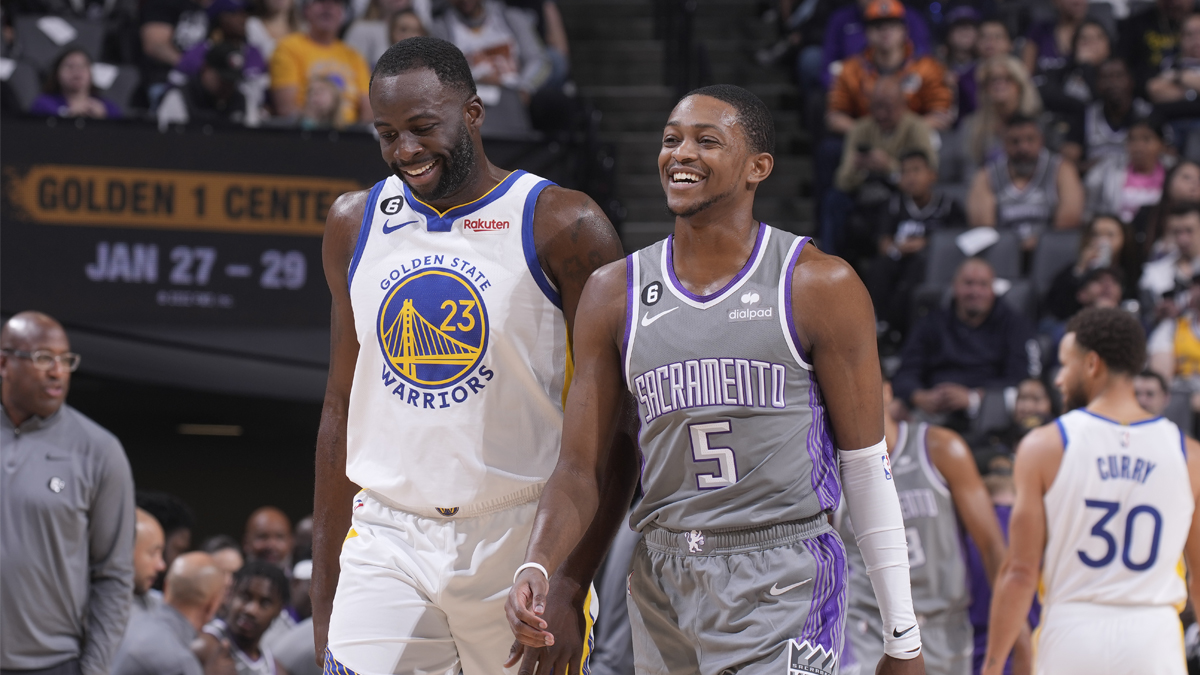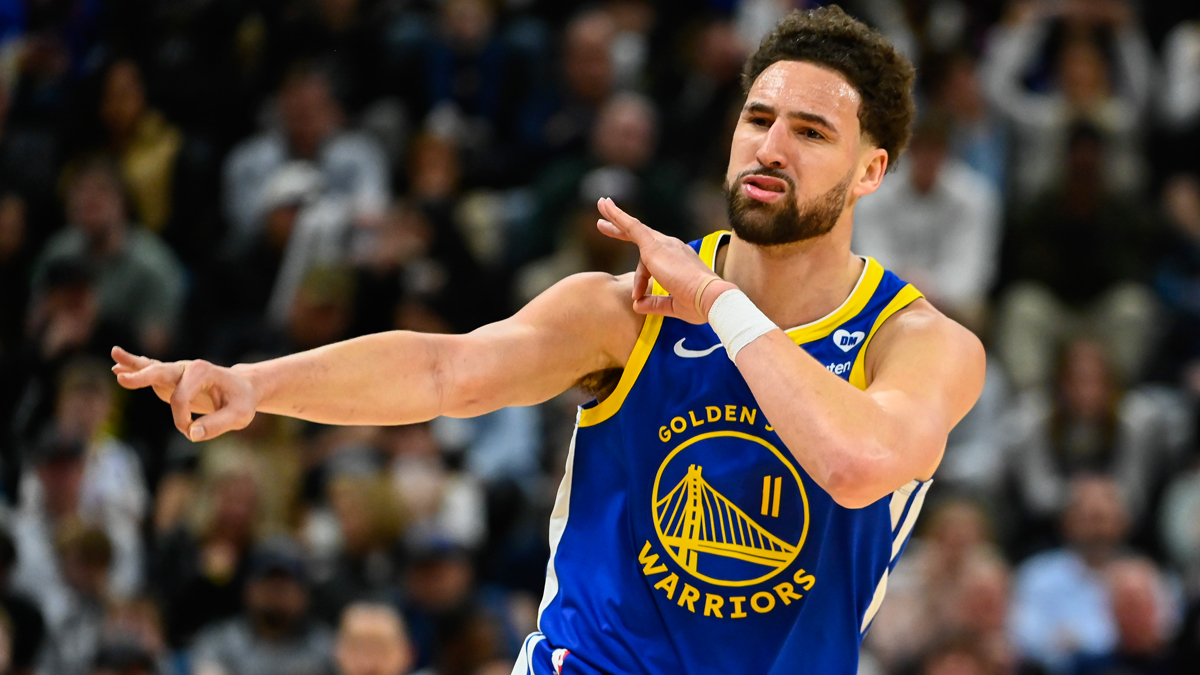
The Warriors' mind-blowingly incredible season has given rise to an endless stream of commentary, analysis and chatter. The team and its players have already achieved several significant NBA records -- the single-season three-point field goal record obliterated by Stephen Curry, the best start to a season in league history (24-0), and the longest home regular-season winning streak (53 and counting). Now they are in hot pursuit of two even weightier records: The all-time single-season wins mark of 72 set by the 1995-96 Chicago Bulls and the first-ever perfect season at home.
One thread in particular has gained traction in both traditional and social media: The worry that by chasing these last two records, the Warriors will jeopardize their chance to win another championship. According to many, all of this “history” stuff is irrelevant and dangerous.
Respected columnist Ann Killion gave voice to the fears of Dub Nation in the San Francisco Chronicle last Friday. “None of those records matters. What matters most -- the only thing that counts -- is if the Warriors win another championship. And if the pursuit of the best regular-season record in NBA history could have a negative impact on that greater goal, then the Warriors should simply forget about trying to make history.”
Stay in the game with the latest updates on your beloved Bay Area and California sports teams! Sign up here for our All Access Daily newsletter.
It’s a popular theme these days. But does that idea truly hold water?
To answer that question, two components must be tested. First, are the most significant records in any particular sport really meaningless absent a championship? Second, is an eye toward record-setting always detrimental to a title chase?
Let’s give the first question a bit of context. The single-season records fans most often fixate on, like the one set by Curry this year, are individual rather than team accomplishments. These are some of the most famous numbers in sports. Pop quiz: What do the following modern records have in common?
Wilt Chamberlain’s 50 points-per-game average in 1965
Wayne Gretzky’s 92 goals in 1981-82
Nolan Ryan’s 383 strikeouts in 1973
Ichiro’s 262 hits in 2004
Eric Dickerson’s 2,105 yards in 1983
Peyton Manning’s 55 touchdown passes in 2013
Golden State Warriors
Answer: None resulted in a championship. In fact, only Manning’s Denver Broncos even reached the championship round, where they were annihilated by the Seattle Seahawks. Ichiro’s 2004 Mariners (managed by Bob Melvin, for you A’s fans out there) lost 99 games.
I don’t think any fan or sportswriter would call those records meaningless. The pursuit of excellence is what sports is all about, and the holders of these records established themselves as the “most excellent” in each of these crucial categories.
In Curry’s case, he has raised the three-point record from 272 to 286 to the neighborhood of 400. It’s akin to Babe Ruth taking the home run record from 29 to 54 in 1920. This is not merely setting a record, it is changing the game.
Ah, but team records are different, you might say. While individual marks are glamorous and fun to follow, the underlying goal in team sports is ultimate victory. So are team win totals or streaks of value if they don’t lead to a title?
Of course winning a championship is the bottom line. But beyond that, the way in which a title is won has a great deal to do with how each team is remembered.
Consider the 1972 Miami Dolphins, a team that receives a generous helping of attention every year at playoff time -- the only NFL team to go through a regular season undefeated (14-0 then) and win the Super Bowl.
To be sure, it was a terrific ballclub. The Dolphins finished first in the NFL in both scoring offense and scoring defense and boasted a pair 1,000-yard rushers, Larry Csonka and Mercury Morris. But their style of play was not an aesthetic delight -- more ground and pound than aerial attack. The passing game piloted by Earl Morrall and Bob Griese was pedestrian, posting a 56 percent completion percentage and just 160 yards per game. And the Dolphins did not dominate any of their three postseason games, winning each by a touchdown or less. The prettiest thing about that team was its record, and it is remembered and relevant today almost entirely due to its status as the only undefeated team.
On Nov. 5 that season, the Dolphins barely held off a Bills team that would finish 4-9-1, winning at home 24-23. Then on Nov. 19, again at home, the Dolphins needed a fourth quarter touchdown to come from behind and beat a mediocre Jets squad 28-24.
If they’d lost either of those games -- but still gone on to win the Super Bowl -- does anyone think we’d still be talking about the 1972 Miami Dolphins every January?
Or take Tom Brady. He’s won four Super Bowls as a starting quarterback, equaling Terry Bradshaw and Joe Montana for the most ever. But I’d argue that by far his most memorable season, and his team’s, was 2007, when he threw a then-record 50 touchdown passes and the Patriots threatened the Dolphins’ record by winning their first 18 games. Despite losing on (let’s be honest) a fluky play in the Super Bowl, that Pats squad will be remembered thanks to its oh-so-close attempt at the NFL’s most prestigious record.
Then there are the famed 1995-96 Chicago Bulls, whose wins record the Warriors are hunting. The incomparable Michael Jordan led those Bulls to six championships in eight seasons, missing only the two years he took off to try his hand at baseball. Six! Yet the one team we continue to celebrate and discuss far more than any of the others is the 72-win version.
How about winning streaks? No Bay Area sports fan who was here in 2002 will ever forget the A’s American League record 20-game winning streak. That dramatic event broke through to pop culture in a way few sporting events ever have, celebrated by a bestselling book and a hit Hollywood movie. Did it result in a championship? Not even close.
Records matter. Streaks matter. History matters. To put a different spin on Vince Lombardi’s famous quote, a championship may be everything, but it is not the only thing.
How about the second idea -- that pursuing the wins record may cost the Warriors the NBA title? The evidence does not support it.
The Warriors have clearly shown throughout this season that they’re not going to do anything crazy in service of a record. When any of their players are injured, they sit out. That has at various points included Steph Curry, Klay Thompson, Draymond Green, Harrison Barnes, Andrew Bogut, Festus Ezeli (still recovering from knee surgery) and Andre Iguodala, who has missed 12 of the past 14 games with an ankle problem. Those absences have been weaved throughout the quests for 73 and 41-0.
[RELATED: Report: Ezeli could return this week, Iguodala 'a ways away']
But never mind actual injuries. “They need to rest these guys,” cries the Chicken Little crowd. It’s such a long season. Shouldn’t stars like Curry and Thompson be sitting out entire games to rest up for the playoffs?
San Antonio Spurs coach Gregg Popovich has popularized this concept by occasionally resting his aging stars Tim Duncan, Tony Parker and Manu Ginobili in recent seasons, including twice in the past week. And this technique seemed to pay off with back-to-back Finals appearances in 2013 and 2014. But he did the same thing in 2015, and the Spurs lost in the first round of the playoffs, so a few DNP’s sprinkled around the scoresheet aren’t magic beans.
[RELATED: Kerr: 'Locked into No. 2,' Popovich 'smart' to rest players]
The Warriors have taken care to manage the minutes of their stars this season. Thanks to big leads, Curry has sat out 18 entire fourth quarters, and he has hit the 40-minute mark just twice all season. He is averaging just 33.9 minutes, tied for 32nd in the NBA and fewer than superstars on other contending teams like LeBron James, Kevin Durant and Russell Westbrook. Thompson is 39th in the league at 33.1 minutes. Draymond Green is the team leader at 34.5 minutes, and even he has gone over 40 just six times. The Warriors aren’t exactly running these guys into the ground.
How about those legendary Bulls of 1995-96? After winning the record 72, they then buzzed through the playoffs at a 15-3 clip. Surely they must have cloaked their stars in bubble wrap while cruising down the stretch.
Um, no.
Michael Jordan sat out, ahem, zero games that season while averaging four minutes per game more than Curry has this year. At 32, Michael was five years older than Steph is now.
Scottie Pippen averaged four minutes more per game than Klay Thompson is now. At 30, he was also five years older than Klay. While Pippen did miss five games that season, he played in all 12 Bulls regular season games in April, reaching 39 or more minutes in six of them. Thompson has played 39 or more minutes just five times this season.
The third key member of that Bulls team, Dennis Rodman, played in only 64 games, mainly because he missed a month at the beginning due to injury. But the defense and rebounding specialist averaged 32.4 minutes, only a couple of minutes less per game than Draymond Green who is ten years younger.
We can compare Toni Kukoc, the Bulls’ fourth star, with Andre Iguodala, who is five years older than Kukoc was in 1996. Both averaged around 26 minutes, but Kukoc played in 81 regular season games, while Iguodala figures to finish in the low 60s and be healthy by the time the playoffs start.
In short, most of the Bulls’ stars played considerably more than their Warriors counterparts have. None sat out even a single game from the point the Warriors are at now through the end of the season -- each played all 12 April games over a span of just 20 days.
Did this “lack of rest” hurt the Bulls? Obviously not. They did care about setting the wins record, and they did, surpassing the 1971-72 Lakers by three. Were they fresh enough when the playoffs started? The Bulls won 14 of their first 15 games. (They finally lost a couple to Seattle before nailing down the title in Game 6 of the Finals.)
Let’s consider a possible Warriors-Spurs matchup in the Western Conference Finals.
Many observers think that, absent major injuries, the only plausible threat to Golden State is San Antonio. And that makes sense. The Spurs are a deep, talented, supremely well-coached team with a championship pedigree. At 62-12, they are also putting together one of the great campaigns in league history, one that has been overshadowed only by the transcendent Warriors.
But this potential showdown can take place only in the third round of the playoffs, which would begin no earlier than mid-May. And thanks to the NBA’s drawn-out postseason schedule, there will be many off days between now and then, especially if the Warriors can dispatch their first two opponents relatively quickly. So the idea that sitting out a game or two now is going to make a substantial difference then seems dubious.
There is one more factor to consider. Many teams with gaudy records, confronted with few challenges during the regular season plus extra rest, have lost their edge by the time the postseason begins. For a memorable local example, we can look to the 1987 San Francisco 49ers. A team laden with Hall of Famers outscored opponents by 14 points per game and finished that strike-interrupted season 13-2. They rolled through their opposition in the final three regular season games by an aggregate score of 124-7. But after giving their starters some late rest and then waiting around for two weeks, they laid an egg in a shocking divisional round loss to the Vikings.
It’s entirely possible that this record business is exactly what the Warriors need to stay sharp until the second season.
In terms of management, this Warriors team has been orchestrated to perfection. The brain trust led by Joe Lacob, Bob Myers and Jerry West may have inherited Curry, but they have since drafted brilliantly -- Thompson, Green, Barnes, Ezeli. They have acquired shrewdly -- Bogut, Iguodala, Livingston, Speights, Barbosa. In the face of public skepticism, they took the risk of dispatching a winning coach to select an even better one. And they have proven quite capable of strategic adjustments when necessary (think the Memphis and Cleveland series last year).
The Warriors and Steve Kerr, winner of five championship rings as a player and now one as a head coach, seem to have a pretty good handle on what they’re doing. If any group in sports is capable of balancing a championship push with a record chase, it is this group.
I say go for it.


